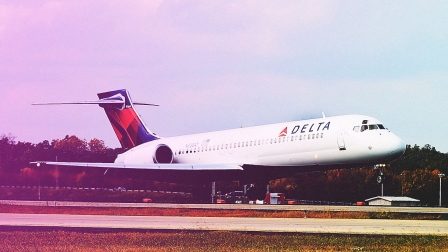Turbulence Ahead: Delta Computer Outage Is Just The Start, Say Experts
After a data center outage caused Delta Air Lines to cancel more than 2,100 flights this week, Delta CEO Ed Bastian said the company’s doing everything it can to make sure such an event never happens again.
“This isn’t the quality of service, the reliability that you’ve come to expect from Delta Air Lines,” he said in a statement, after the company offered $200 vouchers to customers whose flights were canceled. “We’re very sorry. I’m personally very sorry.”
But experts say the airline industry’s legacy computing systems, 24-hour uptime requirements, and difficulties attracting top technology workers could make preventing future similar outages a major challenge.
“The airlines are dealing with a hodgepodge of equipment that’s been cobbled together over the years,” says George Hobica, the president of Airfarewatchdog.
Industry mergers have meant airlines have interlinked systems, sometimes decades old, from a range of legacy carriers, all without the luxury of ever shutting down their systems for maintenance, he says. While other businesses can occasionally shut down their computer systems for scheduled or even emergency maintenance without a public outcry, airlines simply can’t track passengers, baggage, planes, or crew without their technology systems, he says.
“In order to fix the No. 2 [New York subway] line, the MTA sometimes has to shut it down,” Hobica says, but airlines never plan to ground flights or shutter reservation systems to do upgrades or maintenance. And they’re also competing with technology companies that can often offer more pay and prestige to hire workers with the skills to keep tech systems up and running, he says.
“Good IT talent is really hard to find,” he says. “And if you’re a superstar, are you gonna work for Delta because you get free flights now and then, or are you gonna work for Google or Facebook, or a billion dollar startup that is giving you stock options?”
And, says Joseph George, vice president of global recovery services at Sungard Availability Services, air travel can be a particularly unforgiving field when it comes to computer problems: Outages in a variety of systems can make it difficult to check in customers or dispatch planes, quickly wreaking havoc for the traveling public and costing airlines huge amounts of money.
“They’ve got more mission critical customer facing applications, so when there is downtime it’s immediately obvious,” he says.
Delta attributed the service disruption to a fire in an uninterrupted power supply component, which led to a power outage at the airline’s main Atlanta data center that wasn’t properly handled by the airline’s backup systems.
“Around 300 of about 7,000 data center components were discovered to not have been configured appropriately to avail backup power,” the company said. “In addition to restoring Delta’s systems to normal operations, Delta teams this week have been working to ensure reliable redundancies of electrical power as well as network connectivity and applications are in place.”
But similar service issues, attributed to different technology failures, have affected other airlines in recent months: A router issue led to the cancellation of more than 2,000 Southwest Airlines flights just last month, reportedly costing the airline more than $54 million, and similar issues caused widespread disruptions for United Airlines and American Airlines flights last year.
“It seems like the redundant systems are not working,” says Billy Sanez, vice president of marketing at travel search engine FareCompare.
One issue, he says, is that airlines’ flight networks are so intertwined that any disruptions to service quickly cascade through the country or even the world. With planes scheduled to make multiple stops throughout the day, a cancelled takeoff can lead to two or three more cancellations at the aircraft’s next destinations. And while airlines may be able to operate a limited schedule without computer systems, operating a full slate of flights with pen and paper just isn’t practical, he says.
“You can do it manually, but instead of doing thousands of flights a day, you can probably do a hundred a day,” Sanez says.
The bottom line, he says, is that travelers shouldn’t be completely surprised to see flights grounded by computer problems in the foreseeable future.
“As passengers, you always have to be prepared for things like this,” he says. “No meeting is too important. No vacation can’t be rescheduled.”
Fast Company , Read Full Story
(36)


